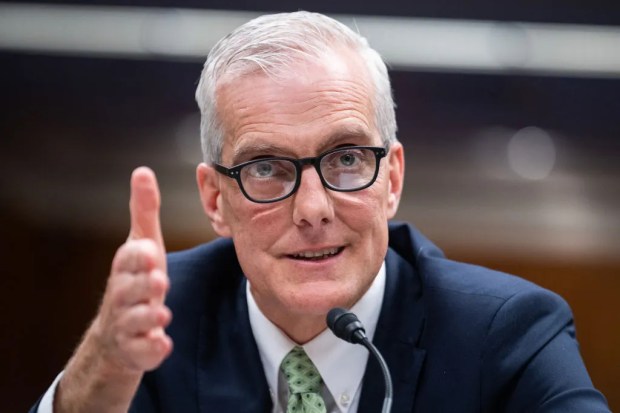The career trajectory for doctors used to be relatively simple. After graduating, you would step on the conveyer belt of post-graduating training, keep your head down and sooner or later come out the other end either a fully-fledged GP or consultant.
More and more I hear junior doctors talking about throwing the towel in and signing up to locum instead of trundling down the well-worn medical career path
Of course, there were always exceptions. Careers were interrupted by children, some pursued careers outside of medicine and some doctors chose to work as ‘career grade’ doctors – who chose not to continue training up to consultant level but instead worked as independent doctors under a named consultant. And there were of course locum doctors, but this tended to be a temporary measure; something you did while biding your time before a permanent job came along or when you were in-between contracts. By and large, long-term locuming, while it did undoubtedly happen, was not something encouraged or even talked about much and was certainly not considered a career aspiration. In the first few years of being a doctor I never actually came across a locum.
How things have changed. Now, there’s rarely a shift goes past where I don’t meet one. Studies seem to support the idea that locum doctors are increasing. A study published in 2016 in the BMJ found that the number had doubled since 2009. A paper by the GMC looking at the numbers of doctors who are locuming showed that from 2013 to 2017, there was an increase of almost 12,000 licensed doctors working as locums. This equated to nearly one in five of all licenced doctors. You can bet it’s even more now.
A number of apparently unconnected and random policy decisions, social and economic shifts and changes to training have meant that more and more doctors are opting out of the traditional NHS career pathway and choosing locum work as a viable long-term plan. I don’t blame doctors for this – they’re doing nothing wrong personally by opting to be a locum – but it has potentially devastating consequences on substantive staffing levels and patient care. It’s true that locums give organisations greater workforce flexibility. However, there are also concerns about training, induction, support and continuity of care, as well, of course, cost.
In 2019-20, the bill for all agency and NHS bank staff in England was £6 billion. To add salt to the festering wound, Trusts spend significantly more on locum fees than on recruiting for permanent posts – an eyewatering 25 times more, according to figures published in the BMJ.
There are different ways hospitals can use locums. Some have locums employed direct by the Trust – they are often used to fill longer-term roles or used to float between different services as needs arise. They are paid more but have less security. Locum agencies are an even more expensive option for the NHS, and the doctors may have no experience of the Trust. It’s not uncommon for agency locums to have no access to computer systems, emails or electronic records.
Politicians and NHS managers have tried to address the locum issue but used blunt tools to do so. Rather than seeking to understand why locums are used, they have simply sought to enforce restrictions on their use. A recent analysis of locum doctor use noted that a target was set to all trust in England to reduce agency costs by 17 per cent for 2018/19, for example. Yet, the cost of agency staff has remained constant between 2017 and 2020.
More and more I hear junior doctors talking about throwing the towel in and signing up to locum instead of trundling down the well-worn medical career path. They talk of feeling in control, getting a better work/life balance, being free to move around, less responsibility and commitments and, of course, better money. With more money per shift, they can work fewer hours – the Gen Z dream, it would seem. And as trusts are increasingly desperate for doctors to fill gaps, they can pick and choose when they work and the work they do. And it’s not just juniors either – a number of consultant colleagues have moved from NHS substantive posts to locuming, tired of the paperwork, management issues and pressures. Being a locum GP or consultant means you get better money (up to about £200 an hour, sometimes more for antisocial hours) and none of the headache. As one former colleague told me, who left his NHS substantive post two months ago and is now an agency locum, you get to actually see patients and not care about managers or attend endless meetings. As NHS managers have been handed more and more power, and now frequently seem to see doctors as an irritant that need to be supressed, so becoming a locum is a convenient and effective way of stepping away from all these petty politics. Un-filled posts and gaps in rotas mean there’s more pressure on remaining staff. They then see these gaps being filled by locums on multiples of what they earn an hour. Why would you stay?
There’s also been a shift in attitude, especially in younger doctors. The introduction of tuition fees and the removal of grants has meant many medical graduates are leaving medical school with £100k worth of debt. There’s now a belief that if you’ve bought your degree then it’s yours to do with as you please. There’s no sense of loyalty to the public who helped pay for your training and certainly no sense of duty to the NHS. By making a medical degree a commodity that you’ve bought, the unintended consequence is that medical graduates have become aware of their worth on the open market and feel emboldened to make use of this. Traditionally, substantive or salaried jobs in the NHS meant a gold-plated pension which kept lots of doctors toiling away in the health service and prevented roving eyes from flirting with other options. But while still good, changes to the pensions for doctors over the years have made them less appealing when faced with earning significantly more by locuming. The NHS pension simply isn’t the pull it once was.
Underlying this have been changes to the post-graduate training of doctors. The implementation of working time directives and contract changes have meant that doctors now often work rota patterns that mean they aren’t necessarily working for the same consultant, but rather ‘float’ to where they are needed, meaning they aren’t mentored in the same way and aren’t supported. It feels like being a locum, just without the financial benefits. In an attempt to stream-line the training process, a new training system was introduced in 2007 that pushed juniors to choose a specialty after their two years of ‘foundation’ training after graduating. Many don’t feel prepared to embark on specialist training so early, so decide to locum while they consider their options. Once they’ve sipped at the locum chalice, it can be intoxicating. But there’s also things like the removal of doctor’s messes, where doctors used to come together to eat, moan and discuss complex cases. It helped provide a sense of camaraderie and unity. Removing them has destroyed the tacit fellowship, closeness and comradeship that these kinds of communal spaces fostered. The removal of free accommodation for junior doctors has had an impact too. These were all decisions that were made in isolation but together have meant that the junior doctor workforce feel undervalued, alone and fed up.
There’s bigger social factors too. While a generation ago the stable and reliable income of an NHS medical career meant that many in their mid to late 20s could buy their own property. Rising house prices means this is a pipe-dream for many and when faced with escalating rental prices, why not jump ship and build up a nest egg?
This all creates a perfect storm: as more doctors leave and there’s more gaps in rotas, not helped by years of poor medical workforce planning, so there’s more locum jobs and more people are tempted to make the leap. Social media has made it even easier for locum agencies to find and contact doctors. I get contacted at least once a week. It’s hard to resist their siren call when you feel disillusioned and undervalued. When there’s less sense of belonging, is it any wonder people wander off?
Got something to add? Join the discussion and comment below.
Get 10 issues for just $10
Subscribe to The Spectator Australia today for the next 10 magazine issues, plus full online access, for just $10.




















Comments
Don't miss out
Join the conversation with other Spectator Australia readers. Subscribe to leave a comment.
SUBSCRIBEAlready a subscriber? Log in